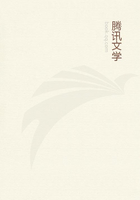
第17章 POLITICAL CONDITIONS(12)
The position of such divines as Paley,Watson,and Hey was not so much that the Unitarians were wrong,as that the mysterious doctrines were mere sets of words,over which it was superfluous to quarrel.The doctrine was essentially traditional;for it was impossible to represent the doctrines of the church of England as deductions from any abstract philosophy.But the traditions were not regarded as having any mysterious authority.Abstract philosophy might lead to deism or infidelity.Paley and his like rejected such philosophy in the spirit of Locke or even Hume.But it was always possible to treat a tradition like any other statement of fact.It could be proved by appropriate evidence.The truth of Christianity was therefore merely a question of facts like the truth of any other passages of history.It was easy enough to make out a case for the Christian miracles,and then the mysteries,after it had been sufficiently explained that they really meant next to nothing,could be rested upon the authority of the miracles.In other words,the accepted doctrines,like the whole constitution of the church,could be so modified as to suit the prejudices and modes of thought of the laity.The church,it may be said,was thoroughly secularised.The priest was no longer a wielder of threats and an interpreter of oracles,but an entirely respectable gentleman,who fully sympathised with the prejudices of his patron and practically admitted that he had very little to reveal,beyond explaining that his dogmas were perfectly harmless and eminently convenient.He preached,however,a sound common-sense morality,and was not divided from his neighbours by setting up the claims characteristic of a sacerdotal caste.Whether he has become On the whole better or worse by subsequent changes is a question not to be asked here;but perhaps not quite so easily answered as is sometimes supposed.
The condition of the English church and universities may be contrasted with that of their Scottish rivals.The Scottish church and universities had no great prizes to offer and no elaborate hierarchy.But the church was a national institution in a sense different from the English.The General Assembly was a powerful body,not overshadowed by a great political rival.
To rise to be a minister was the great ambition of poor sOns of farmers and tradesmen.They had to study at the universities in the intervals,perhaps,of agricultural labour;and if the learning was slight and the scholarship below the English standard,the young aspirant had at least to learn to preach and to acquire such philosophy as would enable him to argue upon grace and freewill with some hard-headed Davie Deans.It Was doubtless owing in part to these conditions that the Scottish universities produced many distinguished teachers throughout the century.Professors had to teach something which might at least pass for philosophy,though they were more or less restrained by the necessity of respecting orthodox prejudices.At the end of the century,the only schools of philosophy in the island were to be found in Scotland,where Reid (1710-1796)and Adam Smith (1723-1790)had found intelligent disciples,and where Dugald Stewart,of whom I shall speak presently,had become the recognised philosophical authority,VII.THEORYWhat theory corresponds to this practical order?It implies,in the first place,a constant reference to tradition.The system has grown up without any reference to abstract principles or symmetrical plan.The legal order supposes a traditional common law,as the ecclesiastical order a traditional creed,and the organisation is explicable only by historical causes.The system represents a series of compromises,not the elaboration of a theory.
If the squire undertook by way of supererogation to justify his position he appealed to tradition and experience.He invoked the 'wisdom of our ancestors,'the system of 'checks and balances'which made our Constitution an unrivalled mixture of monarchy,aristocracy,and democracy deserving the 'dread and envy of the world.'The preion for compounding that mixture could obviously be learned by nothing but experiment.Traditional means empirical.By instinct,rather than conscious reasoning,Englishmen had felt their way to establishing the 'palladia of our liberties':trial by jury,the 'Habeas Corpus'Act,and the substitution of a militia for a standing army.The institutions were cherished because they had been developed by long struggles and were often cherished when their real justification had disappeared.The Constitution had not been 'made'but had 'grown';or,in other words,the one rule had been the rule of thumb.That is an excellent rule in its way,and very superior to an abstract rule which neglects or overrides experience.The 'logic of facts,'moreover,may be trusted to produce a certain harmony:and general principles,though not consciously invoked,tacitly govern the development of institutions worked out under uniform conditions.The simple reluctance to pay money without getting money's worth might generate the important principle that representation should go with taxation,without embodying any theory of a 'social contract'such as was offered by an afterthought to give a philosophical sanction.Englishmen,it is said,had bought their liberties step by step,because at each step they were in a position to bargain with their rulers.
What they had bought they were determined to keep and considered to be their inalienable property.One result is conspicuous.In England the ruling classes did not so much consider their privileges to be something granted by the state,as the power of the state to be something derived from their concessions.